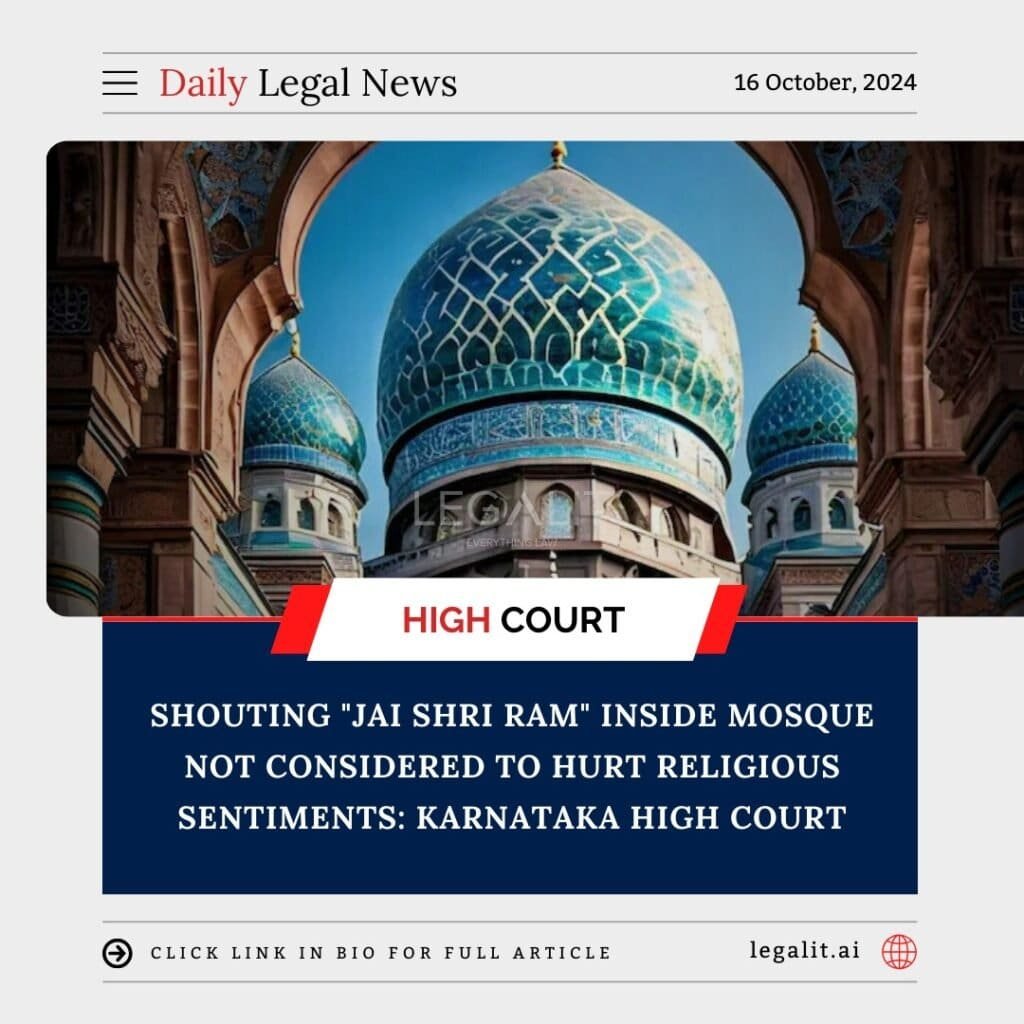
Background of the Case
In an incident that stirred religious sentiments, a group of individuals allegedly entered a mosque in Karnataka and raised slogans like “Jai Shri Ram.” This led to complaints from the Muslim community, who claimed that the act was a deliberate provocation and insult to their religious beliefs. A case was subsequently filed, accusing the individuals of hurting religious sentiments under Section 295A of the Indian Penal Code, which criminalizes deliberate acts intended to insult the religion or religious beliefs of any class of citizens.
The Court’s Ruling and Reasoning
The Karnataka High Court, after reviewing the facts of the case, ruled that shouting “Jai Shri Ram” inside a mosque, in this context, did not amount to hurting religious feelings. The Court emphasized that for an act to fall under Section 295A, it must be deliberate and malicious, with the intention of outraging the religious sentiments of a specific community. In this particular case, the Court found no conclusive evidence that the slogans were raised with such an intent. The individuals involved claimed that their actions were spontaneous and not aimed at disrespecting any religion.
The Court also highlighted that the mere expression of religious slogans, unless coupled with violent or malicious intent, cannot automatically be assumed to be offensive or criminal under the law. The judgment reinforced the idea that freedom of speech must be balanced with respect for religious sentiments, but not every expression of religious fervor in proximity to another faith’s place of worship would qualify as a violation of the law.
Implications of the Judgment
This ruling by the Karnataka High Court could have wider implications for cases involving religious expressions in public or near places of worship. It underscores the importance of intent in determining whether an act constitutes an offense under laws designed to protect religious sentiments. The judgment sets a precedent that mere slogans or chants without evident malicious intent do not amount to a criminal act. However, it leaves room for interpretation in future cases, as the line between freedom of expression and deliberate provocation is often thin and context-dependent.
The Need for Reforms in Religious Sensitivity Laws
The case highlights the need for clearer guidelines in addressing issues of religious sensitivity. While India’s legal framework provides protections for religious sentiments, there is often ambiguity regarding what constitutes a deliberate offense. In a multicultural and religiously diverse society like India, it is critical to strike a balance between upholding free speech and ensuring that religious groups are not unfairly targeted or provoked. There could be calls for reforms that provide more clarity in defining offenses under Section 295A, perhaps incorporating specific guidelines for actions in and around places of worship.
Conclusion
The Karnataka High Court’s decision to dismiss the charges against the individuals involved in the mosque incident reaffirms the need to carefully evaluate intent when dealing with cases of alleged religious offense. The ruling protects the constitutional right to free expression while ensuring that genuine instances of religious provocation are subject to legal scrutiny. However, this decision also opens up discussions about the need for clearer laws that balance religious sensitivity with freedom of speech in India’s complex social fabric.